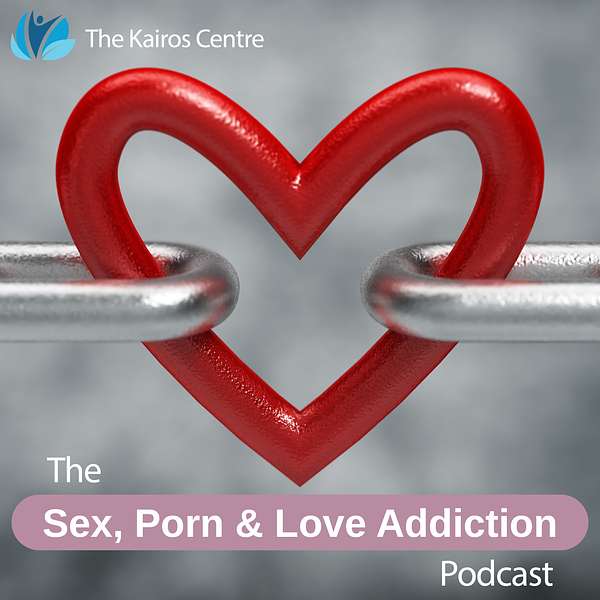
The Sex, Porn & Love Addiction Podcast
Gary McFarlane helps you understand Sex, Porn & Love Addiction. This podcast dives into the neuroscience behind these issues, guiding you on the path to recovery. For more resources, visit: www.kairos-centre.com.
Helping you better understand the neuroscience of the brain and sharing what we now better understand about the brain's involvement, from childhood development. To help you effect change; find the real authentic you (whose truth self went off at a tangent in childhood); so that as you discover and become re-acquainted with the real you, having learnt to like yourself, you are equipped to be the best that you can be. Maximise the living of an increased quality of life; and on the journey, achieve recovery and sobriety from Sex, Porn & Love Addiction using The Kairos Centre Changement Recovery Online Webinar programme; bringing colour back to life - without shame.What may be the world's first fully comprehensive Video-on-Demand Webinar Programme to help you gain sobriety and Recover from Sex, Porn, Love Addiction patterns of behaviour.
First address the unresolved past uncomfortable events and then go after the Compulsive/Addiction activities.
The Sex, Porn & Love Addiction Podcast
Sex Addict: "I chose you, then (nearly) destroyed us"
- On-Demand Programme Link - https://mailchi.mp/bb2a7b851246/kairos-centre
Early relationships (often with our parents) has a very powerful impact on the blueprint of partner choice. They are unconsciously looked at as being able to repair those childhood wounds. We often seek a blueprint that “fits” ours.
When we meet a potential partner, we have an opportunity to re-Attach to a loved person, just like (or better than) the Attachment bonding we had with our parents when we were young. A 'someone' we feel safe with and gives us other familiar feelings which usually make us feel comfortable and have a sense of belonging.
We tend to idealise our partners initially. In time, we get very disappointed when they do not live up to our expectations. We feel very let down.
Both, may have had Attachment issues from childhood and have separation anxiety, but they may have different coping styles. At some point, when repeated conflict arises, questions and doubt also surface like:“This is not the person I thought I had married.”
After the shock, comes denial. The disappointment is so great that you don’t allow yourself to see the truth. You do your best to see your partner’s negative traits in a positive light. Eventually, however, the denial can no longer be sustained. You feel betrayed.
We fall in love with 'sameness' and 'differenceness'. This is why we find “opposites attract”. We are unconsciously searching for and eventually think that we have found 'the one'; our 'other half/better half!'.
It should be remembered that all couple fits, serve an emotional and psychological purpose. They are there to provide comfort, a sense of security and wholeness. We are not always aware of our fit until it is challenged or disrupted. Do any of these seem familiar in your relationship?:
Babes in the Wood: Cling together in the face of the odds. Unconscious rejection; repressed anger within the relationship; expressed anger at people outside the relationship. They often look the same and will behave in a likeable, affable manner. A couple such as this see all the bad things in the world as belonging in the outside world and not part of themselves. They keep anything bad out of their relationship. The world literally is a “big bad wolf”.
Net and Sword: The ‘net’ shows all the love & tries to encompass, control or placate the sword. Conscious rejection; deny need or yearning for other. Relationship works well until one partner owns up to their denied feelings & decides they will not be responsible for the others unexpressed feelings. One partner shows all the love and the other, all the rejection. One person expresses all the denied emotions that the other cannot or will not express. This relationship works well until one partner owns up to their denied feelings and decides they will not be responsible for the others unexpressed feelings, often plunging the other into confusion or profound feelings of loss.
Cat and Dog: Characterised by anger, rejection and other destructive emotions. Both are only conscious of the bad in each other, but often will not part because they fear they cannot or will not be able to find a relationship with anybody better. This relationship is characterised by anger, rejection and a host of other destructive emotions. Both are only conscious of the bad in each other and their lives seem like a war zone. Intimacy is regulated by conflict and they often will not part because they fear they cannot or will not be able to find a relationship with anybody better. (I call this one "Tom & Jerry" - characterised by a never-ending chase and never catching the other)
Podcasts we love
Check out these other fine podcasts recommended by us, not an algorithm.
